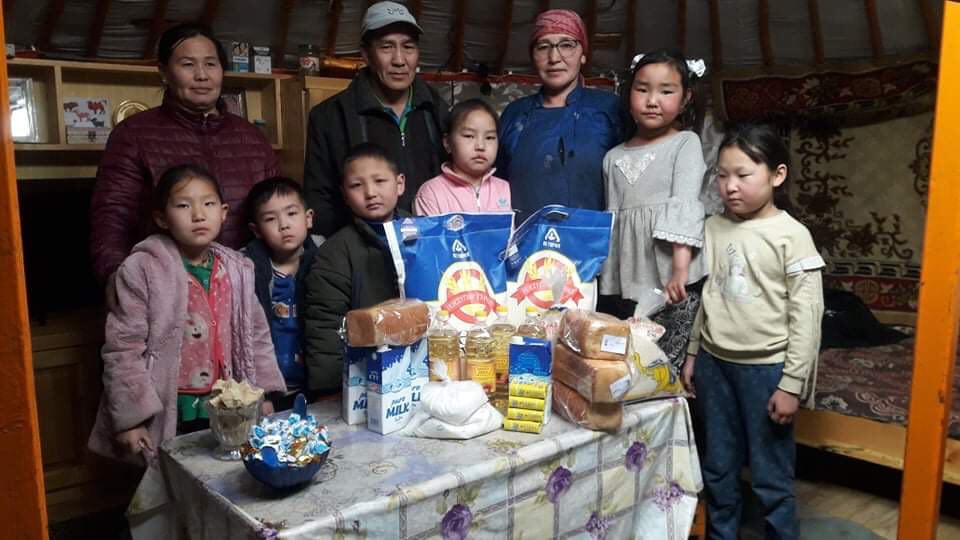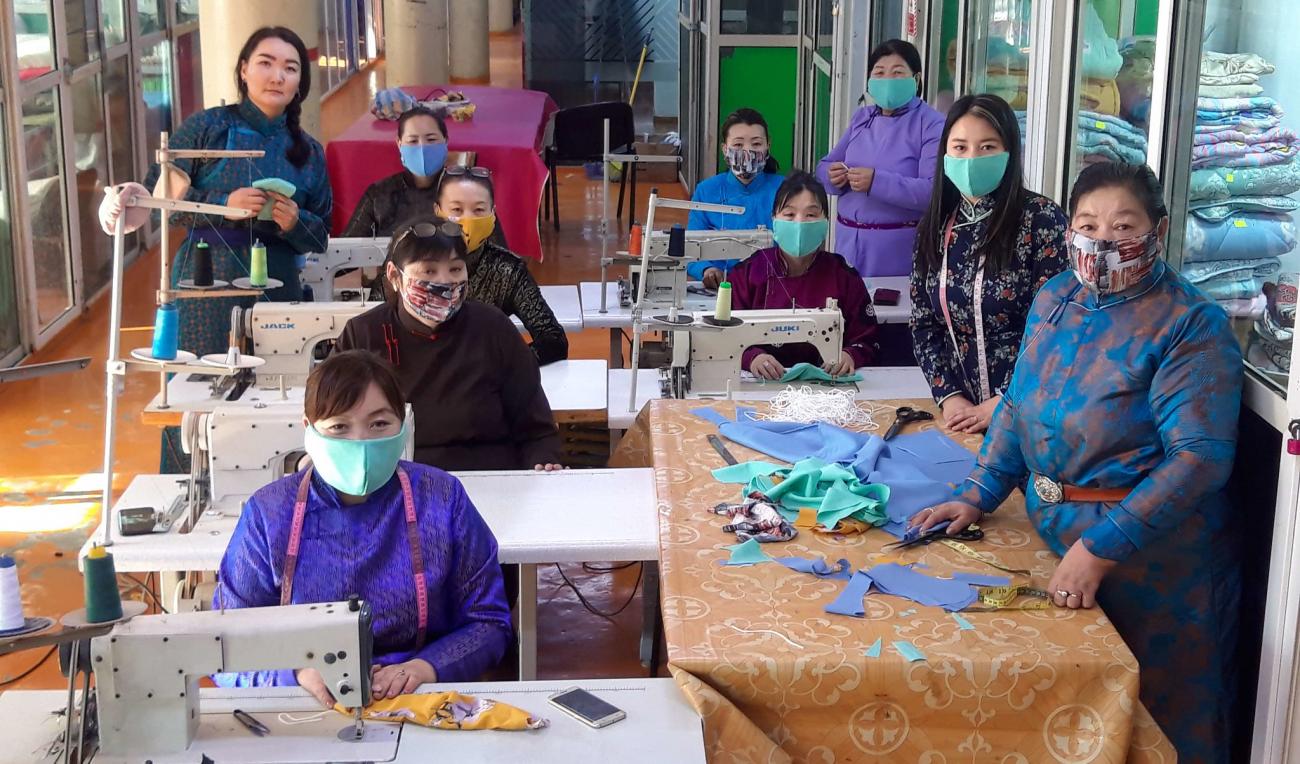
KOEF Grant Partner Spotlight: Sain Tus Center
By Verónica Aguilar (Mixtec / CS Staff)
The COVID-19 pandemic is lasting much longer than expected and Indigenous communities all around the world are responding according to their own knowledge, cultures, and resources. Many of them are now in a more vulnerable situation due to an increase in poverty and unemployment, mobility restrictions, and a lack of reliable sources of information to prevent COVID-19. Keepers of the Earth Fund (KOEF) grant partner Sain Tus Center supported Indigenous communities in Jargalant Sum, Khovd Province in Western Mongolia, through implementing their project "COVID-19 Crisis, Emergency Response.'' Their main goal was to improve knowledge about how to stop the spread of the coronavirus and encourage the use of masks. They also provided food to the most vulnerable in their community.
Sain Tus Center is a local non-governmental organization that seeks to empower local people living in Western Mongolia. They work with disadvantaged persons on a variety of issues including economic improvement, health support, environmental protection, human rights awareness building, and others. They also support the revitalization of Indigenous traditions and cultures in their region.
With a Keepers of the Earth Fund grant and in coordination with local representatives, Sain Tus Center provided two educational brochures, food packages, sanitary supplies, and training for sewing face masks and for improving health measures against COVID-19. This project supported 100 impoverished Indigenous families belonging to Kazakh, Altai Uriankhai, Chantuu, Zakhchin, Torghut, and Durvud Peoples. In total, 834 Indigenous people directly benefited.
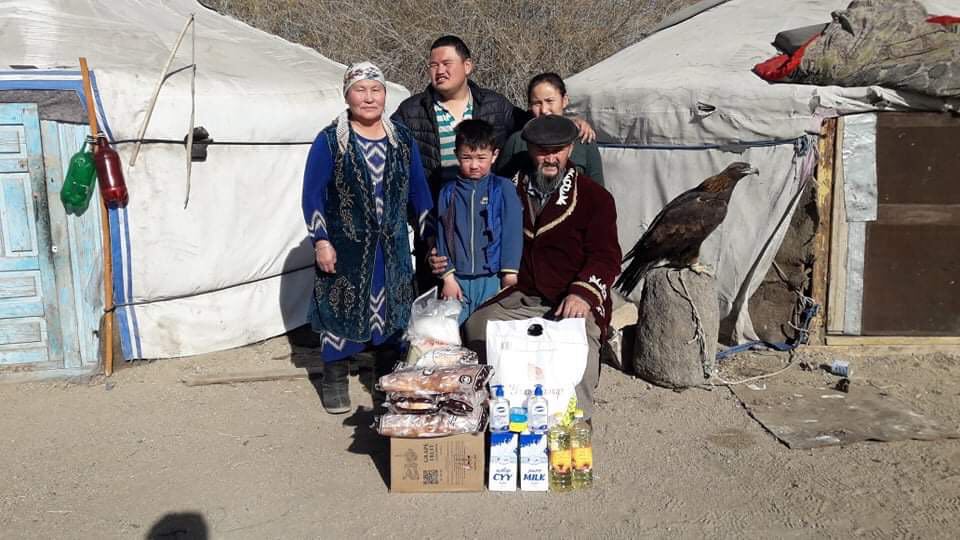
The two of their informational brochures addressed sanitary measures for outdoor and indoor prevention of COVID-19 transmission. Between September 2020 and March 2021, the brochures were distributed to all 100 families participating in the project, with one food package consisting of flour, oil, rice, bread, milk, and sugar. Families also received personal hygiene supplies like sanitizer and soap, as well as materials to make reusable face masks.
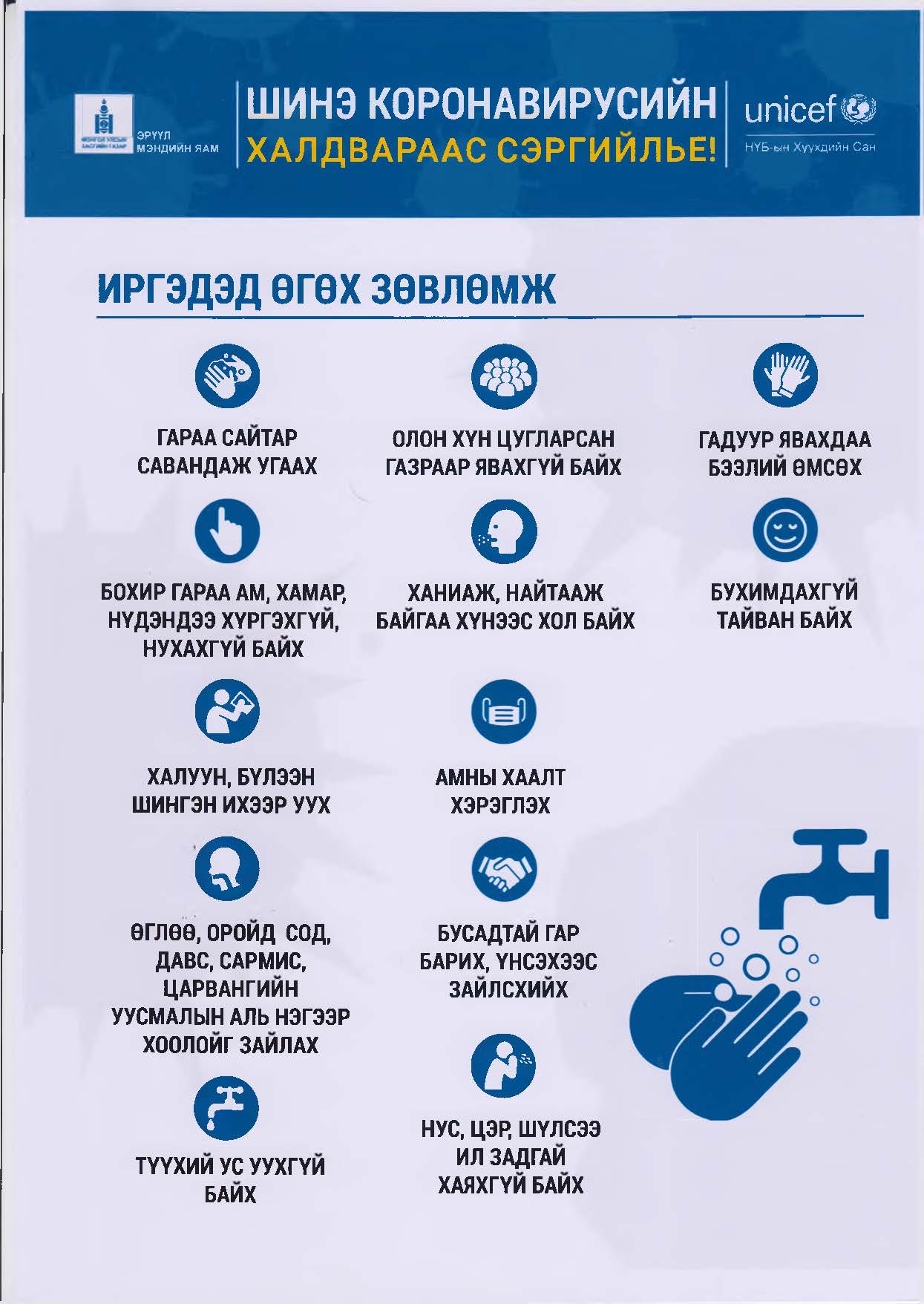
As a way of ensuring a long-lasting impact of the project, training opportunities were organized to teach community members how to sew face masks. Participants are expected to continue sewing their masks and also to teach other Indigenous people this skill. Additional training sessions were organized to improve income generation and living conditions of the families by also teaching skills related to the sewing of traditional clothing, production of felt products, and vegetable farming.
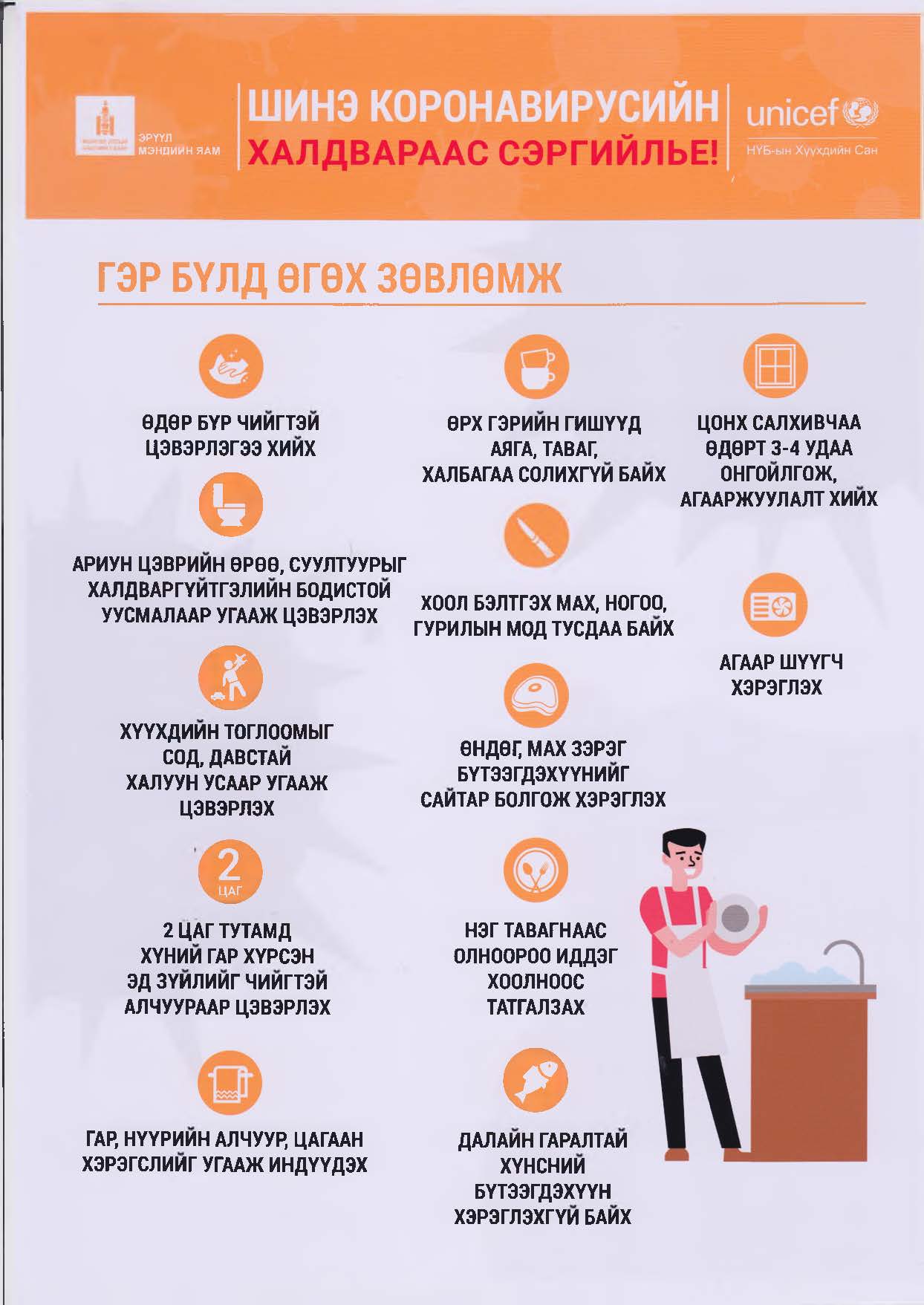
Sain Tus Center reports an increase in the use of face masks among the participating families, as well as a positive impact on health because of the food supplies. The women trained in sewing are already teaching others these skills. The organization plans to continue working with the families by launching self-employment groups with activities such as sewing, farming, and manufacturing of felt products.
Not only the participating families benefited from this work: “Facilitating this project has helped Sain Tus Center to gain more experience organizing activities among Indigenous people. The lessons learned will help our organization to facilitate more successful activities with Indigenous communities who live in the Western region of Mongolia in the future,” they state in their report.
Sain Tus Center’s project is one of the 30 projects supported in 2020 as part of Cultural Survival emergency COVID-19 response in 16 countries through the Keepers of the Earth Fund. KOEF is an Indigenous Led Fund designed to support Indigenous Peoples’ community development and advocacy projects. Since 2017, KOEF has supported 119 projects in 31 countries totaling $533,299. KOEF provides small grants to grassroots Indigenous-led communities, organizations, and traditional governments to support their self-determined development projects based on their Indigenous values. Predicated on the United Nations Declaration on the Rights of Indigenous Peoples, Cultural Survival uses a rights-based approach in our grantmaking strategies to support grassroots Indigenous solutions through the equitable distribution of resources to Indigenous communities.
